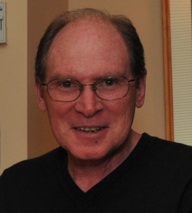
“The opposite of depression isn’t happiness,” explained Dr. Peter Kramer in an interview with Johns Hopkins, “it’s resilience.” One of the best books on that topic is Robert Wick’s “Bounce: Living the Resilient Life.” I keep it on my shelf as a reference whenever I need advice on how to stay well. I was going to interview Wicks about his book, but his publisher did such a great job that I’m going to excerpt from their interview with him. To get to the full interview click here.
OUP: Resilience seems so important to how you live your life but is it really that essential?
Dr. Robert J. Wicks: Physician and author Walker Percy in one of his novels poses the question: “What if you missed your life like a person misses a train?” Unfortunately, in today’s stressful world with multi-tasking being the norm of the day, this is easy to do–especially for those who fail to pay attention to the forces which strengthen our inner life and help us grow through and from the difficult experiences all of us encounter.
OUP: But can resilience be learned? Some people seem born resilient and others seem to have difficulties dealing with adversity almost from the time they are born.
Dr. Robert J. Wicks: You have a point. Some people do seem more resilient all the way from childhood. However, that is not the crucial issue for leading a fuller life. Each of us has a range of resilience–in other words, the ability to meet, learn from, and not be crushed by the challenges and stresses of life. This range is formed by heredity, early life experiences, current knowledge, and the level of motivation to meet life’s challenges and enjoy each day to the fullest–no matter what happens! However, of even more import than the different ranges people have is their conscious decision to maximize the ways in which they can become as resilient as possible.
OUP: Is part of this resiliency-training, learning ways to avoid stress?
Dr. Robert J. Wicks: Yes and no. Living a full life is more than the absence of negative occurrences or pressures. The sources of all stress cannot–and probably should not–be prevented. Yet, there are ways stress can be limited and, more importantly, as those who study resilience report, the way stress impacts us does not have to be totally negative. As a matter of fact, each of us has an opportunity to become deeper and more compassionate in response to the stressors in our lives if we are aware of some basic practices to: contain and understand stress; seek to be more mindful; are reasonably self-aware; and are interested in learning how to maintain a healthy sense of resilience and perspective.
OUP: How did you get so interested in the concept of “resilience”?
Dr. Robert J. Wicks: For almost 30 years I have dealt with a unique kind of darkness called “secondary stress”–the pressures experienced by persons who are in the healing and helping professions. In observing and working with physicians, nurses, psychologists, educators, relief workers, counselors, and persons in full time ministry, I have observed that especially among the most resilient in these groups, how they experience even the most difficult encounters in life is quite telling.
OUP: In a nutshell, what would be some of the more essential ways to maximize your “resiliency range?”
Dr. Robert J. Wicks: Improving your own self-awareness through using a daily de-briefing program, developing a realistic but comprehensive self-care program, understanding better the practice of “mindfulness”, applying the recent findings on positive psychology, and ensuring that 4 types of friends are present in your interpersonal network would all contribute to strengthening your personal and professional resiliency.
To read the entire interview, click here.
* Click here to subscribe to Beyond Blue! And click here to follow Therese on Twitter. And click here to join Group Beyond Blue, a depression support group. Now stop clicking.

